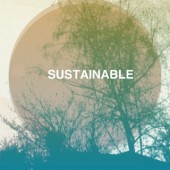
Abstract: Industrial forms of food production and consumption are tied to environmental and socio-economic crises like climate change and social injustice. Changes in consumer behavior provide a lever to initiate transformations toward a more sustainable food system. One vehicle that is widely recognized as having the ability to encourage behavior change at large is education. Sustainability education has become increasingly popular over the past two decades, often being studied in innovative teaching-learning formats which employ transformative pedagogies that aim to foster critical consciousness through deep listening, dialogue, action, and reflection of students. However, classical teaching formats that employ more transmissive pedagogies, focused on delivery and mastery of content, have been comparatively little researched in the field of sustainability with regard to how they impact student behavior. Thus, this research aims to study if transmissive sustainability education can encourage university students to consume food more sustainably. To accomplish this, a case study with 12 undergraduate students in a food sustainability course was conducted. Mixed-methods data collection and analysis techniques, such as questionnaires and interviews, were utilized in order to track participants’ self-reported food consumption behaviors before, during, and after the course. Results suggest agreement among participants about the importance of course contents, but show no significant changes in their food consumption behaviors. The findings of this empirical study support the conclusion that imparting sustainability knowledge alone is insufficient to trigger behavior change.
Continue Reading
Formal classroom learning experiences that support sustainable behaviors outside the classroom necessarily must bridge students’ home and school lives, as knowledge and practice learned in the classroom is implemented outside of school. To this end, we study the impact of the Green Ninja Energy Tracker curriculum, which uses students’ home energy data in the classroom to promote engagement in climate change and conservation behaviors. Data is drawn from class observations, a focus group, and pre- and post- surveys of a pilot implementation of this curriculum in a diverse 12th-grade Earth Science classroom at an alternative school. We investigate what factors contributed to student engagement in learning about and participating in energy conservation behaviors. We found that students were engaged by the immediacy of tracking their energy use in near-real time, and were motivated by the economic benefits experienced as a direct result of changing their behaviors. In addition, students reported discussing and problem-solving energy use with their families, and surfaced considerations that informed which energy behaviors were implemented and why. Students also reported high levels of personal agency in taking action on climate change, but were pessimistic about the likelihood of society as a whole taking action. We suggest that this pilot demonstrates the potential power of connecting the varied places of students’ experience by bridging home and school lives through energy tracker software as a catalyst for developing scientific expertise and engagement, and supporting energy conservation behaviors.
Continue Reading
This study presents outcomes from the Girls Energy Conservation Corps, a research and development project that produced a series of six patch activity guides for girls age 8-14 who are members of the Girl Scouts of Eastern Massachusetts. The program focused on integrating engaging online and real world activities that involved girls in learning about climate change and their role in it, in saving energy, understanding the importance of collective goals and action to address climate change, and using new media creatively to educate peers and the community about energy conservation. Positive changes in knowledge, behavior, and attitudes pre to post suggest that a carefully designed program can address the challenges of educating children about energy conservation and climate change at this age, even if participant exposure to the program is brief. Findings also bring to light that developmental differences may be important to deconstruct in future studies when applying adult-tested behavior change models and theories to youth.
Continue Reading
A study was conducted using a modified participative goal setting approach to create a behavior change over the course of a semester. Two approaches to goal setting were used. Student subjects set goals regarding switching from one-time use plastic or paper bags to reusable bags when grocery shopping. They monitored their behavior on a weekly basis. We hypothesized that the participants would report: 1) an increase in the degree to which they used reusable bags on shopping trips, 2) being more committed to acting in an environmentally-responsible manner, 3) voluntarily adopting additional sustainability-related behaviors that are not required as part of the exercise, and 4) attempting to affect sustainability-related behavior in others. Additionally, the following research question was posed: Would any behavior change be accompanied by changes in attitudes towards sustainability? Results indicated that goal setting was effective in increasing the reported frequency of using reusable bags when shopping, though there was not significant change in attitudes. A more simplified approach was almost as effective as a more complex. If our results can be generalized, they suggest that managers can use a simplified goal setting technique to increase the frequency with which employees engage in sustainable behavior. Further, a change in attitude may not be necessary for this effect to occur.
Continue ReadingAchieving a sustainable future requires that individuals adopt different values, attitudes, habits, and behaviors, which are often learned and cemented at a young age. Unfortunately, current educational efforts are inadequate for achieving transformative action. Even programs whose primary goal is to promote responsible, pro-environmental behaviors have largely failed at creating change among students. The lack […]
Continue Reading